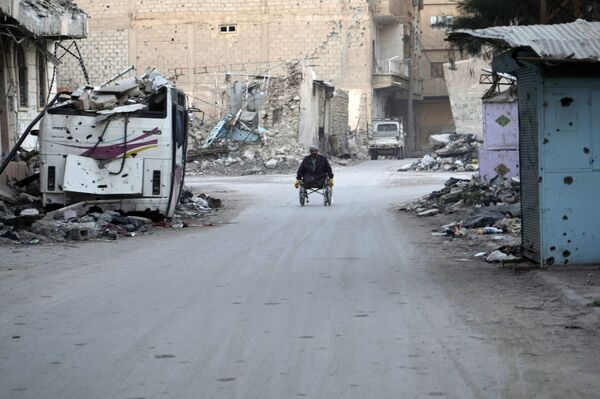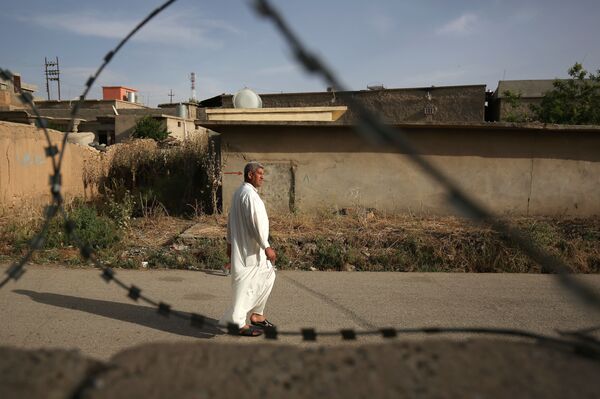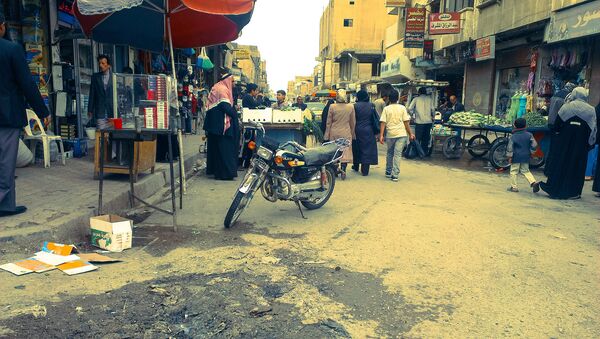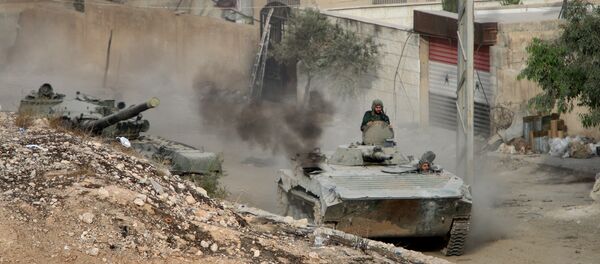The problem is not getting into the cities under Daesh (also known as Islamic State/ISIL/ISIS) control, the problem is getting out.
"Leaving the city is now really hard," Abu Ibrahim al-Raqqawi, an activist with the group Raqqa Is Being Slaughtered Silently, told the outlet. "The problem is not going to Raqqa, it's how to get out."
Raqqawi — who uses a pseudonym — however said he is still able to travel back and forth from the city with the help of smugglers. His family, however, has to remain inside the city.
The activist also added that Daesh confiscates the passports of residents to make it more difficult to travel and forces people in the city to register so that the militants can keep tabs on everyone.
There are also certain restrictions for women and boys under 19 years of age.
"They are not allowing women to leave the city if they are not over 45 years old, and they are not allowing boys to leave the city if they are not over 19," Raqqawi said. "After the [group released a] statement that, 'We want to register every boy in the city over 14,' people are very afraid of the recruiting and want to leave."

The magazine quotes a resident of another Syrian city, Deir Ezzor, who goes under the name Fikram, as saying that even some government areas are “surrounded by Daesh so civilians can't get out except under certain conditions."
"The area that is controlled by the terrorist organization has one road that civilians can go out from, and they open it during specific dates and times," Fikram said. "Also, the civilians cannot move their personal items like home furnishings from the city."
Another resident of Deir Ezzor, an activist of from the group D'Arezzo, Ali Leili, said that people are required to write a guarantee that they will return to the city, even if they need to leave it for medical treatment.
Residents of other cities have talked of similar rules.

In Iraqi Mosul, Daesh requires anyone leaving the city to provide the militants with the names of relatives who can vouch for their return. If the person does not return, their relatives may be arrested.
The above restrictions force the residents resort to unconventional means to leave their homes.
"Hundreds of residents of Deir Ezzor and especially young people have left the province via secret smuggling routes to Turkey and then to Europe, [although] some of them are still in Turkey," Leili said.
"Everyone fled because of the hell experienced in the province because of the violations of [Daesh, which is] tightening the grip on the people there."



